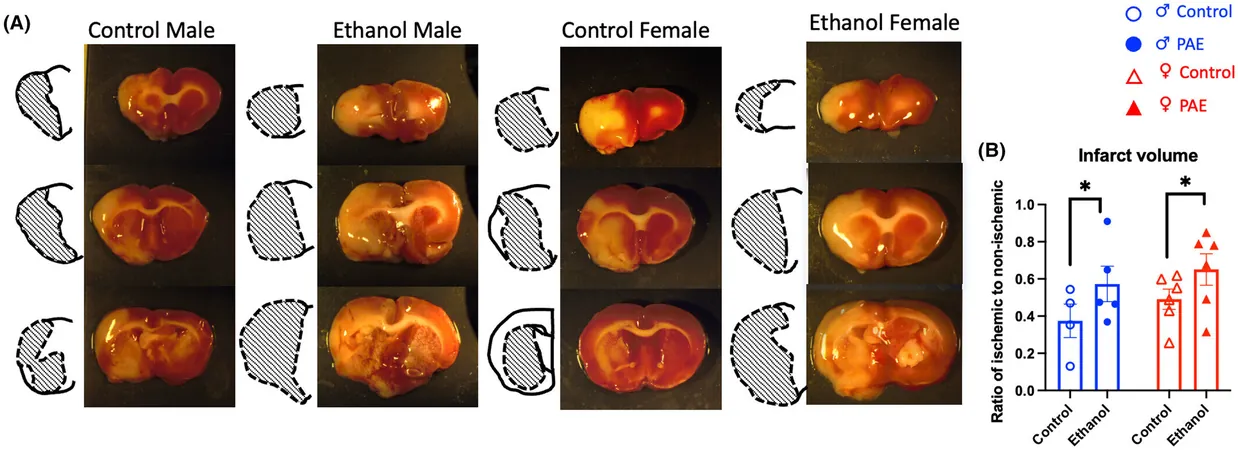
Could a New Law of Nature Reveal the Secrets of the Universe's Complexity?
2025-06-08
Author: Sarah
The Alien Enigma and Fermi's Paradox
In 1950, renowned physicist Enrico Fermi posed a thought-provoking question: if intelligent extraterrestrial civilizations exist, why haven’t we encountered them? This query birthed what is known as Fermi's Paradox, prompting a cascade of theories about the potential self-destruction of such civilizations or, more fundamentally, the staggering improbability of intelligent life emerging at all.
Introducing a Radical New Theory
In a bold twist, a multidisciplinary team of researchers offers an alternative perspective. They assert the existence of a new law of nature, positing that the complexity of entities in the universe naturally increases over time—akin to the second law of thermodynamics, which states that disorder, or entropy, tends to rise. If validated, this theory could imply that complex, intelligent life forms are not as rare as previously believed.
Redefining Biological Evolution
This groundbreaking idea, proposed by mineralogist Robert Hazen and astrobiologist Michael Wong, redefines biological evolution. Instead of viewing it as a singular process that produces unique life forms, they suggest it is a specific case of a broader principle driving the universe—entities evolve based on the richness of information they can harness to perform certain functions.
Controversy and Debate
The hypothesis has ignited intense discussion in scientific circles. Some experts embrace it as part of an overarching narrative about natural laws, arguing that physics alone cannot explain the wonders of nature. Conversely, critics believe the concept is an overreach, citing difficulties in quantifying this 'functional information,' which varies in context and cannot be easily tested.
Unraveling the Origins of Complexity
The pursuit of understanding complexity began in 2003 when biologist Jack Szostak sought to measure the functional information embedded in biological molecules. His innovative approach revealed that the usefulness of a molecule could be understood by looking at how many other molecules can perform the same task—a game-changing insight into molecular biology.
Digging Deeper into Functional Information
Hazen later collaborated with Szostak on a computer simulation demonstrating that functional information could spontaneously increase through evolutionary processes. This laid the groundwork for examining how complex systems arise—not merely in living organisms, but across all forms of matter, including minerals.
An Interdisciplinary Approach
Recognizing the multifaceted nature of the problem, Hazen and Wong sought expertise from various scientific disciplines, emphasizing that the challenge lies at the intersection of physics, biology, and philosophy. They believe that selection for function underlies the creation of increasingly intricate systems across the universe.
Complexity Beyond Biology
Hazen's and Wong's exploration suggests that the process of complexity generation isn't exclusive to living organisms. Even non-living systems evolve toward greater sophistication, repeating patterns seen in biological evolution. This revolutionary perspective proposes that physical laws governing life may not be as divergent from those governing non-biological systems as once thought.
The Implications for Life Beyond Earth
The researchers speculate that if life and intelligence arise organically from the universe's drive toward complexity, the conditions for their emergence might occur elsewhere, too. This significantly alters the narrative in the search for extraterrestrial life, suggesting that the universe could be teeming with undiscovered intelligent beings.
Join the Conversation
As scientists like Hazen and Wong push the boundaries of our understanding, the questions that emerge are profound: Are life and consciousness inevitable? What might new causal laws in nature reveal? As we delve into the complexity of existence, humanity stands on the brink of potentially reshaping its understanding of the universe—and its place within it.
The Road Ahead
While the debate surrounding functional information continues, it’s evident that a monumental shift may be underway in how we perceive life, complexity, and evolution. As research evolves, we may yet uncover the underlying principles governing not just natural phenomena but also the very fabric of existence.

 Brasil (PT)
Brasil (PT)
 Canada (EN)
Canada (EN)
 Chile (ES)
Chile (ES)
 Česko (CS)
Česko (CS)
 대한민국 (KO)
대한민국 (KO)
 España (ES)
España (ES)
 France (FR)
France (FR)
 Hong Kong (EN)
Hong Kong (EN)
 Italia (IT)
Italia (IT)
 日本 (JA)
日本 (JA)
 Magyarország (HU)
Magyarország (HU)
 Norge (NO)
Norge (NO)
 Polska (PL)
Polska (PL)
 Schweiz (DE)
Schweiz (DE)
 Singapore (EN)
Singapore (EN)
 Sverige (SV)
Sverige (SV)
 Suomi (FI)
Suomi (FI)
 Türkiye (TR)
Türkiye (TR)
 الإمارات العربية المتحدة (AR)
الإمارات العربية المتحدة (AR)